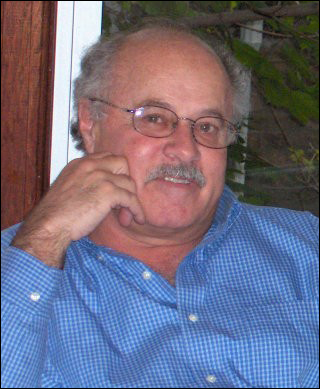April Third Movement
Juan Flores

Cultural Analysis, New York University)
Juan Flores, a leading theorist of Latin American studies and a pioneer in the field of “Nuyorican” culture, the arts and language of Puerto Ricans in New York who toggle culturally between the city and the Caribbean island, died on December 2 in Durham, North Carolina. He was 71.
His wife, Miriam Jiménez Román, said the cause was complications of Guillain-Barré syndrome, a rare autoimmune disorder.
A Brooklyn resident, Professor Flores had been attending an academic conference at Duke University in early November when he experienced the first symptoms of the disease. He died, apparently of a pulmonary embolism, at Duke University Medical Center, his wife said.
Professor Flores, who was a professor of social and cultural analysis at New York University, wrote more than a dozen books and edited many collections of essays. He was considered an important advocate for Puerto Rican writers like Edgardo Rodriguez Juliá and the Nuyorican poets Tato Laviera and Louis Reyes Rivera, whom he helped introduce to wider audiences through his work as a scholar, teacher and widely traveled lecturer.
His books included From Bomba to Hip-Hop (2000), a study of the ambiguous citizenship status of Puerto Ricans, and The Diaspora Strikes Back (2009), about the mingling of Caribbean, African and Central American traditions in the New York Latino landscape.
His work was praised for the intellectual depth and resonance he brought to the subject of popular culture’s relationship to ethnic identity. His academic background was unusual: His Ph.D. was in German literature and German intellectual history, and his writing reflected that emphasis; his study of Nuyorican sociology, for example, employed Hegelian dialectics and Marxist class analysis.
He was a classically trained intellectual with a deep interest in the voices of ordinary people,
said James Early, the director of cultural heritage policy at the Smithsonian Center for Folklife and Cultural Heritage in Washington. By voices,
Mr. Early said, he meant the way ordinary people express themselves—through ethnic identification or music
or other means.
Professor Flores also studied Dominican and Salvadoran communities in New York. But his primary focus was on the experience of Puerto Ricans, reflecting his own heritage.
Puerto Ricans, he said, are unique Americans on several counts. Fully enfranchised when residing in one of the 50 states, they are not permitted to vote in federal elections, like other territorial residents, when living on the island.
At the same time, settling in New York in large numbers for the first time in the 1950s, Puerto Ricans represented the first migrants to arrive on the mainland chiefly by air and the first to be able to shuttle between their original homes and their new ones.
The term ‘Nuyorican,’ in fact, is an adoption of a term that was a pejorative term used by islanders,
Professor Flores said in a 2006 interview with Afropop Worldwide, an online journal and radio program. The term was meant to connote the street-tough manner and African-American lingo that some Puerto Ricans brought back to the island from the city.
So then,
he said, some of the poets and the people from here
—New York—said, ‘Oh, you call us Nuyoricans? O.K., then, we’re Nuyoricans!’
There’s a class dimension to it,
he added, “and a racial dimension.”
John Martin Flores was born in Alexandria, Virginia, on September 29, 1943, to Angel Flores, a literary critic and scholar of Latin American literature, and Kate Mann Berger Flores, a writer. His father, a Puerto Rican who taught at the City University of New York, was influential in introducing Latin American literature to the United States.
Professor Flores, who grew up in Bayside, Queens, decided to study German in high school mainly because it was an alternative to Spanish, which he had grown up speaking at home. He went on to major in German-language studies at Queens College, where he received his bachelor’s degree. He earned his master’s and Ph.D. in German literature at Yale University.
He began teaching German at Stanford University in 1970 and became involved in radical politics and a movement to develop Chicano studies curriculums in California. He also changed his name to Juan
In 1975, he returned to New York to work at Centro, where the Latino studies curriculum was being developed for the City University system. Through his work there, he was hired as a professor of black and Puerto Rican studies at Hunter College, where he taught for many years before moving to N.Y.U. in 2006.
Besides his wife, he is survived by two daughters, Diana Flores and Andrea Flores Khalil; a sister, Barbara Flores Dederick; a brother, Ralph; and four grandchildren.
At his death, Professor Flores was writing a biography of Eddie Palmieri, the Puerto Rican pianist and bandleader.
Professor Flores considered music the definitive expression of Nuyorican culture, and for him the boogaloo dance hits of the 1960s, like Joe Cuba’s Bang Bang, epitomized the blend of Puerto Rican and African-American influences. It was just one example, he wrote in a 1999 essay, of what music made by people “living and loving in unison beyond obvious differences” might sound like.
"Juan Flores, a Scholar of Puerto Rican Culture in New York, Dies at 71," by Paul Vitello, The New York Times, Dec. 8, 2014. Link
"Juan Flores—Defining Latino Studies at CUNY", interview of Juan Flores by Carol Amororuso, HAV Editor, IMDiverity, Inc. Link
"In Memoriam: Juan Flores (1943-2914)," Nexos, Center for Latin American and Carribean Studies at New York University, 2014–2016. Link
